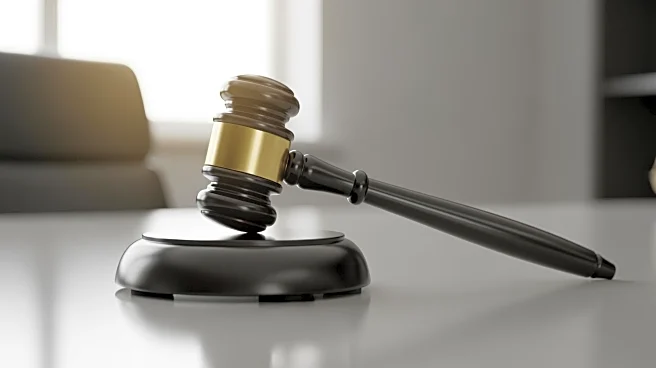What's Happening?
Fox News host Harris Faulkner filed a lawsuit against Pawtucket, Rhode Island-based toymaker Hasbro for $5 million in 2015. The legal action was taken due to a toy hamster in Hasbro's 'Littlest Pet Shop'
product line that shared Faulkner's name and allegedly resembled her. Faulkner claimed the toy caused substantial commercial and emotional damage and falsely implied her endorsement of Hasbro and the toy. The case was settled amicably in 2016, with a joint statement from Faulkner and Hasbro confirming that the 'Harris Faulkner' toy was no longer manufactured or sold.
Why It's Important?
The lawsuit highlights the complexities of intellectual property rights and the potential for public figures to protect their likeness and name from unauthorized commercial use. This case underscores the importance of companies ensuring they have the necessary permissions when using names or likenesses that could be associated with real individuals. The settlement reflects a resolution that avoids prolonged litigation, which can be costly and damaging to both parties' reputations. It also serves as a reminder for businesses to be cautious in their branding strategies to prevent similar legal challenges.
What's Next?
While the lawsuit has been settled, Hasbro's decision to cease production of the 'Harris Faulkner' toy indicates a move to prevent further legal issues. The company is also planning to relocate its headquarters from Pawtucket to Boston by the end of 2026, which may involve strategic shifts in its operations and branding. This relocation could impact local employment and economic activity in Rhode Island, as Hasbro has been a significant presence in the area since its founding in 1923.
Beyond the Headlines
The case raises broader questions about the ethical considerations of using public figures' names and likenesses in commercial products. It also touches on the cultural impact of toys and media representations, as they can influence public perception and personal branding. The resolution of this lawsuit may encourage other public figures to be vigilant about their intellectual property rights and prompt companies to review their product lines for potential legal vulnerabilities.









